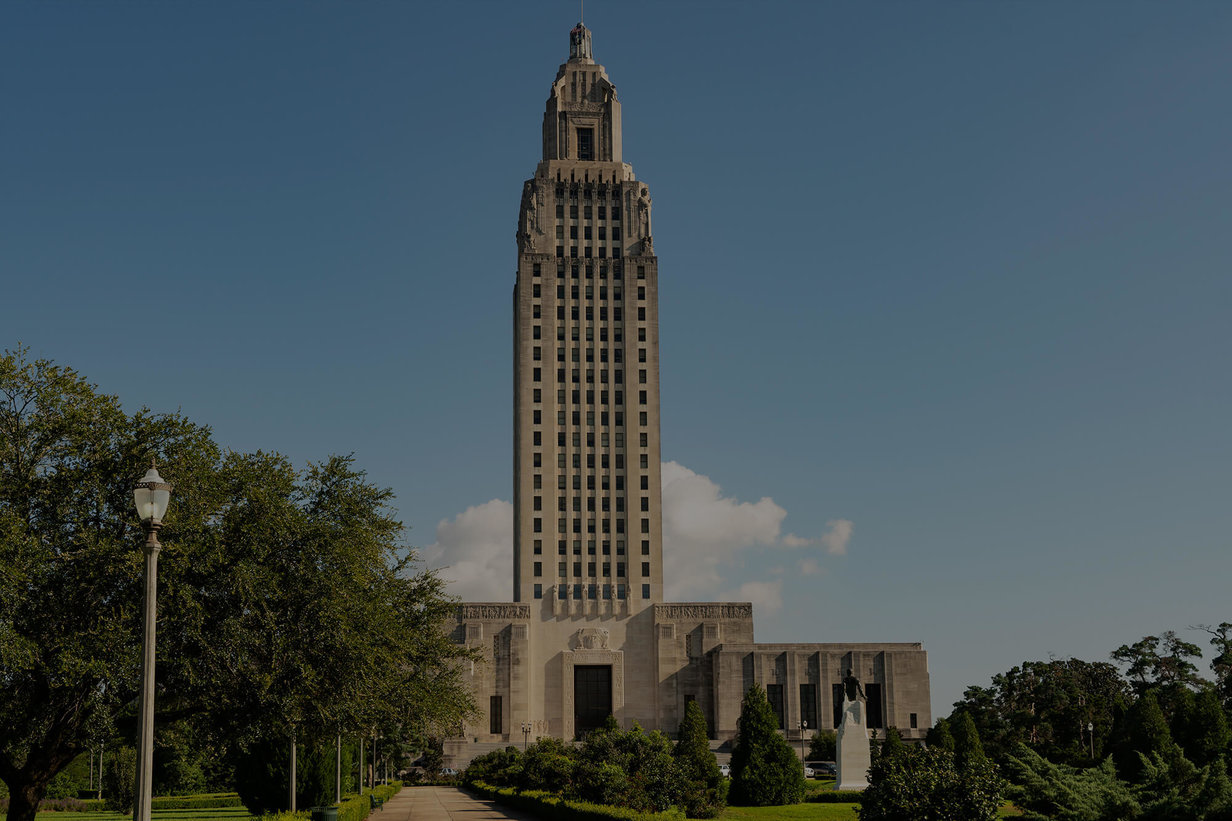543 Spanish Town Rd.
Baton Rouge, LA 70802
The Wrap-Up: 2021 Fiscal Legislative Session
The Legislature adjourned “sine die” from its 2021 Fiscal Session at 6:00 p.m. on Thursday, June 10, 2021. Because odd-numbered years in Louisiana are designated for legislative sessions with a mandated, narrow focus on revenue and fiscal matters, the 2021 Fiscal Session required fewer calendar days than a regular, even-numbered year session. Fiscal sessions are limited to subject matter restrictions on legislation pertaining to state finances; however, members may file up to five “general” subject matter bills not related to fiscal affairs. In addition to making appropriations to fund state operations for FY2021-2022, lawmakers established a framework for the disbursement of the American Rescue Plan (ARP) relief funds and passed what some consider progressive tax reform that will head to the ballot in October for voter approval.
Coupled with an abundance of funds from the ARP, the frenetic session saw an unusually early passage of money bills and legislation that reached the Governor’s desk before final adjournment. The Governor is legally required to issue any vetoes within 10 days of receiving a bill, even if this period begins prior to the final adjournment of the legislature. The short window to veto legislation was a motivating factor for legislative leadership to get budget bills on Governor Edwards’ desk before June 10th. Governor John Bel Edwards issued his first round of vetoes on the tenth and final day from his receipt of bills with an expeditious passage. To date, 384 bills sent to the Governor’s desk have been signed into law.
State Funding and American Rescue Plan Relief
The first set of vetoes were line-item rejections from the general and supplemental appropriations bills. The state operating budget, HB1 and the supplemental appropriations bill, HB516, both authored by House Committee on Appropriations Chairman Jerome Zeringue contained funding for projects that were vetted by the legislature. Of the Governor’s eight line-item vetoes to HB1, the most intriguing involved new powers for the Joint Legislative Committee on the Budget (JLCB)—a committee that acts as a budgetary and fiscal representative of the Legislature between sessions. Without a veto, the aforementioned provisions would have given JLCB control of over $146.7 million in federal assistance funding. Edwards’ veto message relative to HB1 stated that the attempt to shift control of these funds to the Legislature was an overexertion of power which is prohibited by the state constitution.
Federal relief provided through the ARP funds allowed state legislators to fully fund budgets, invest in critical infrastructure needs, and save for a rainy day (not to be confused with the Rainy-Day Fund). Lawmakers divvied up nearly $1.6 billion in ARP relief, a bit more than half of the $3 billion total the state is slated to receive from the feds. A portion of the appropriated ARP dollars will be used to fund a number of road and bridge projects. In addition to rumored funds from President Joe Biden’s bipartisan infrastructure bill that would bring additional money to the capital outlay (HB2) budget, the legislature appropriated approximately $563 million from the bulk of the Federal Coronavirus Relief dollars to projects that would widen and repair major interstates. An estimated $300 million of the funds will be used to upgrade the sewerage and water systems, with another $490 million going towards the state’s bankrupt unemployment insurance trust fund.
Conversations surrounding the necessity to invest in broadband infrastructure prompted Rep. Daryl Deshotel to author HB648, a mechanism for a grant-based program to be administered by the Office of Broadband Development and Connectivity, an office housed within the Division of Administration. This program will oversee the disbursement of $90 million in funds made available through ARP dollars to the “Granting Unserved Municipalities Broadband Opportunities,” also known as the “GUMBO” program.
Legislators also established funds to stimulate industries that suffered significant losses due to mandated closures. $77.5 million in funds will be utilized to reinvigorate Louisiana’s tourism industry with marketing campaigns and investment in convention bureaus. Ports, small businesses, and nonprofits will also be eligible for dollars appropriated through grant programs that will be administered by various state departments.
Tax Reform
Leadership of both the House and Senate had goals to pass tax reform during this fiscal session. The primary manifestation of that goal is a streamlined method to collect sales tax. Currently, entities operating in multiple parishes are required to file and pay sales tax collected in the parish in which they operate. Contemplated in HB199 by Speaker Schexnayder, this initiative will have one point of collection for these taxes. Also, it will serve to fully implement the Wayfair decision to collect sales tax from out-of-state companies with no physical presence in Louisiana but with a substantial economic nexus in the state, a streamlined sales tax reporting and collection system is necessary. The ability to subject these entities to taxation represents a potential $400 million in increased revenue to the state. HB199 is a constitutional amendment which must be approved by the people in an election this fall prior to taking effect.
A trio of changes to the rates of corporate income taxation will also share the ballot during the next statewide election. HB292 by Rep. Neil Riser lowers the highest rate of the state corporate income tax to 7.5% and compresses the tax brackets from five brackets to three. Riser’s bill is a companion to another corporate income tax reform bill by Sen. Bret Allain, SB159, which repeals the deductibility of federal income taxes on state income taxes. Coupled with the repeal of federal deductibility, Allain proposed and passed SB161, which extends the sunset on the suspension of the corporation franchise tax for small business corporations until July 1, 2023. This suspension of the corporation franchise tax on the first $300,000 of taxable capital for small business corporations was an initiative by Allain to provide relief to small businesses who suffered losses due to the COVID-19 pandemic.
What began as a bill to levy a sales tax on medical marijuana was amended to become a means to fund critical infrastructure projects. HB514 by the Speaker Pro Tempore Tanner Magee ultimately redirected funds from an existing sales tax on vehicles to roads and bridges projects. The changes to Rep. Magee’s bill come after a previously failed attempt to use a temporary half-cent sales tax for the state’s infrastructure needs. Lawmakers amended HB514 to shift money from the state general fund in order to fix Louisiana’s backlog of critical infrastructure projects. Original concerns surrounding HB514 were dismissed with amendments that removed Rep. Magee’s original legislative intent for a 0.45% sales tax levy on medicinal marijuana. In the bill’s final posture, the funding for infrastructure projects will come from a portion of new vehicle sales taxes. The redirected funds could mean an approximate $300 million placed annually in the Construction Subfund of the Transportation Trust Fund. Legislators are hopeful the investment in infrastructure will stabilize Louisiana’s transportation infrastructure budget needs.
General Subject Matter
As previously noted, legislators may author no more than five, “general subject matter” bills in a fiscal session. Many of the general subject matter bills filed this session reflected political temperatures and a reaction to the national transition of power as well as the effects of the COVID-19 global pandemic. Proposed measures to restrict social media authority, the effort to arm Louisiana with ‘Constitutional Carry,’ proposed policies affecting the LGBTQ+ community and potential restrictions on election-related operations were just some of the hot-topic bills that impacted interactions across party lines.
Women’s Health and Safety
Recent events involving accusations of sexual misconduct at Louisiana State University increased pressure on an already charged legislature and, overall, elevated conversations surrounding women’s health and safety. Several pieces of legislation impacting women’s equality made it to the Governor’s desk for executive approval. Some of the bipartisan measures that advance priorities for women include SB232 by Sen. Regina Barrow that establishes the Power-Based Violence Review Panel, HB7 by Rep. Aimee Freeman, a sales-and-use tax exemption for feminine hygiene products and diapers and several resolutions that direct the state to place a focus on maternal health and wellness.
Marijuana
Discussions surrounding marijuana found a more comfortable audience in a newer group of legislators interested in working collaboratively on bipartisan efforts. Covington Republican, Rep. Richard Nelson brought HB699, a bill to legalize recreational cannabis usage in the state and to levy a new state sales tax through companion legislation. HB699 and the companion tax bill, HB434 were reported favorably to the House floor by the Committee on the Administration of Criminal Justice, a first for legislation focused on recreational marijuana use. Although both
instruments by Rep. Nelson were ultimately unsuccessful in passing from the House floor to the Senate, discussions surrounding recreational use of marijuana likely paved the way for the final passage of Rep. Cedric Glover’s HB652, a measure that decriminalizes marijuana possession for amounts under fourteen grams. Glover’s bill was signed by the Governor and will become effective on August 1, 2021.
Another successful bill relative to marijuana expands the authority for prescribing medical marijuana in the state. HB391 by House Speaker Pro Tempore Tanner Magee authorizes the recommendation of medical marijuana in raw or crude form.
Sports Wagering
Legislation to regulate and tax sports wagering was another bipartisan initiative that helped Louisiana catch up with our neighbors in this arena. With legislation that allows parishes to vote on whether they want to allow sports wagering in their area, the next step was to set up the regulatory and tax scheme under which it will be conducted. HB697 by Rep. John Stefanski set up the tax structure for sports wagering. A companion bill, SB247 by President Page Cortez, established the outlines for the rules which will regulate the industry.
Criminal Justice Reform
Louisiana has been moving in a slow, yet progressive direction with criminal justice reform initiatives. This year was a modest one for criminal justice reform measures that made it to the Governor’s desk; however, several issues that were advanced through the process represented attempts at mitigating prevailing instances of police brutality. Rep. Ted James authored a successful reform measure that reduces the amount of time a defendant may be held for a misdemeanor. HB46 was a compromise with the Louisiana District Attorneys Association to reduce the time an indictment must be filed from forty-five days to thirty days. James originally intended to reduce this filing window to a fifteen-day period but reached a compromise in order to move his legislation forward. HB46 has been signed into law and will become effective January 1, 2022.
Other criminal justice reform priorities that focused on the reintegration of committed felons included HB145 by Rep. Marcus Bryant, HB84 by Rep. Denise Marcelle and HB678 by Rep. Royce Duplessis. These measures increase parole opportunities, allow people with previous felony convictions to serve on juries, and further demolish existing re-entry barriers by incentivizing businesses to hire re-entrants participating in work release programs.
Looking Forward
Despite legislators overcoming partisan differences to accomplish significant measures during the 2021 Fiscal Legislative Session, there continues to be a palpable racial undertone which threatens the success of future sessions. This undertone was either created or exacerbated by a House Committee hearing on a very controversial bill where the author, who is also the Chairman of the Education Committee, testified that teachers would [still] be allowed to teach “the good, bad and ugly” of slavery under his bill. Although the author attempted to walk back the statement, the comment was immediately met with universal condemnation from both sides of the aisle and resulted in calls for his resignation as chair. In response, the House Legislative Black Caucus withheld their vote on any measure requiring a 2/3 vote until the chair was removed. The Chairman was eventually removed and the threat to block legislation was eliminated. However, in the weeks following the statement, several bills dealing with guns, curriculum, voting access and even a state song seemed to turn on racial identity. This has caused several fractures in the body between moderate and more conservative Republicans, Democrats, and the Legislative Black Caucus.
It is under this presiding climate that the legislature will be asked to conduct its most difficult and consequential matter: redistricting. Sometime in late 2021 or early 2022, it is expected the legislature will reconvene for a special reapportionment session. This is a complex and arduous assignment under the best of circumstances, and the task may well be even more difficult given the level of animosity that exists within the body. Following on the heels of what may be a very contentious special session will be a general session where fractures have either grown or bridges have been built to span those divides. The success of future sessions may largely depend on the course of action the legislature takes in the next six to eight months.

All Rights Reserved.
Baton Rouge, LA 70802
- Email:
- connect@ssgla.com
- Phone:
- 225.381.0166

